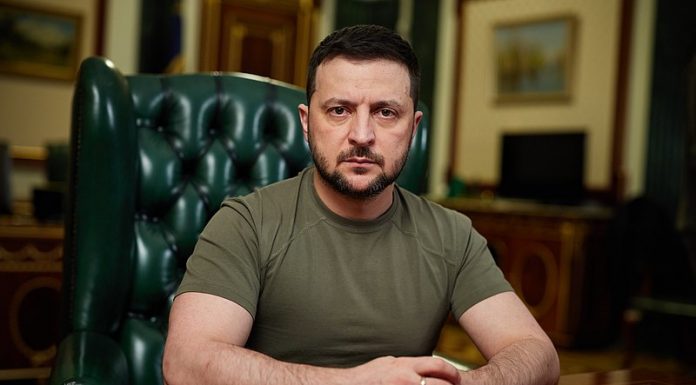This week, Flemish MEP Johan Van Overtveldt (N-VA – ECR), a former Belgian Finance Minister, made it to the top of BCW’s ranking of most influential MEPs this year, out of 705 MEPs. In an interview, he stresses: ‘I deliberately chose not to vegetate here in comfort for many years.’
To calculate the influence of individual MEPs, BCW uses two primary criteria. First of all, it looks at the parliamentary impact of MEPs, and secondly, at their influence and prominence among the general public. Both parameters are calculated from several million data points and then processed into one ranking.
BCW’s analysis reveals that Van Overtveldt is the leading voice within the European Parliament on fiscal policy and that important legislation was also passed under his impetus. In addition, according to BCW, his influence at the EU level extends far beyond purely economic discussions or budget debates.
BCW EU Influence Index measures Parliamentary Influence as an MEP’s ability to impact legislation, shape the political agenda, win votes & gain positions of power.
Discover the full MEP ranking: https://t.co/OI2iEElCMy#BCWInfluenceIndex pic.twitter.com/gybrwC0k1H
— BCW Brussels (@BCWBrussels) November 16, 2023
Why did you receive this award, in your opinion?
Johan Van Overtveldt: ‘Over the past four years, I have mainly concentrated on the real legislative work, and have generally kept very far away from all the resolutions that are voted on here with clockwork regularity. These are usually good for a lot of shouting and raving, but their impact is very limited. In addition, as chairman of the European Parliament’s Budgetary Control Committee, I was also able to negotiate a new multiannual budgetary framework, while the regular annual budgets have also become a lot more politically visible in recent years. Among other things, this is due to the heavy financial impact of the war in Ukraine.’
You are particularly critical of EU spending. Not only because the Commission is asking for more and more money, but also because an increasing part of the budget escapes the control of the European Parliament. Are we on a slippery slope?
Johan Van Overtveldt: ‘I am not exactly alone in my criticism in this respect. Even the European Court of Auditors recently pointed out that this trend towards less parliamentary control is downright frightening. For example, this is the case for the 735 billion from the so-called Covid recovery fund, where in many cases it is unclear exactly how certain amounts are spent. This threatens to further damage the EU’s reputation among citizens.’
‘In addition, it is also true that the European Commission always asks for more money: there will now be a Ukraine fund that will provide over €50 billion in loans and grants for reconstruction in the period 2024-2027. I don’t find that particularly reassuring.’
The🇪🇺Recovery fund has weaknesses in its monitoring system that make it insufficient for measuring overall performance📝
Although the existing system helps to track member states’ progress, it does not provide a full picture of how funded projects contribute to RRF’s objectives.
— European Court of Auditors (@EUauditors) October 24, 2023
Mind the gap : The European Court of Auditors has examined the design of this control system and found an assurance and accountability gap in protecting the EU’s financial interests re the #RRF https://t.co/7f8SaouX9i
— Leo Brincat (@LeoBrincat) March 8, 2023
Dutch Prime Minister Mark Rutte once described the European Parliament as ‘a party committee looking for a party’. For a lot of citizens, too, the European Parliament remains primarily an expensively paid talking shop. Is this still true, and therefore does this not somewhat make the importance of your achievement more relative?
Johan Van Overtveldt: ‘Partly, of course, I can understand the criticism, but at the same time, the European Parliament is indeed a body where new legislation is constantly being voted on. A lot of European decision-making does not pass without our approval. A lot of time and energy is effectively spent here on downright nonsensical things, but the opposite is also true. For instance, I have been working hard for stricter capitalisation requirements for banks, to make them more crisis-proof. With the 2008 financial crisis in mind, you can hardly argue that this is unimportant.’
‘If you figure it out, you can absolutely vegetate here as an MP for several years in a highly paid talking shop, but I deliberately chose not to do that and promote the common good, using what I have specialized in.’
De kwaliteit van de Europese uitgaven daalt jaar na jaar.
Nog zorgwekkender is het groot aantal uitgaven met "hoog risico".
Dat er nu ook grote fondsen buiten de begroting opereren zal die tendens enkel versterken. pic.twitter.com/7r5ur9FnuG— Johan Van Overtveldt (@jvanovertveldt) October 19, 2023
Resistance to the EU seems to have only increased among a lot of people over the past legislature, and the EU’s sometimes forward-looking green agenda will not be entirely unrelated to that. How can the European Parliament increase public support for the EU after next year’s elections?
Johan Van Overtveldt: ‘I do notice quite clearly that a turnaround has begun: things are now passing through the European Parliament that were unthinkable four years ago. I am thinking, for example, of the recognition of gas and nuclear power as renewable energy sources. To the surprise of many, a majority was found for that last year. Don’t get me wrong: of course the climate is extremely important and we must eventually get rid of those fossil fuels completely, but the timing and framework for this are just as important. Especially in the first years of this legislature, we made big mistakes with Frans Timmermans’ Green Deal. We sometimes went too fast and often excessively opted for a go-it-alone approach, when it comes to that.’
The interview was conducted by Filip Michiels and originally published in Dutch by Flemish magazine Doorbraak.













